Avocado
It is an exotic fruit derived from a tropical tree, featuring a creamy green flesh and a brown seed at its core. The scientific name is Persea Americana, and various varieties can be found in markets during different seasons of the year.
It contains high levels of vitamin C and E, accompanied by magnesium and potassium, which prove beneficial for the nervous, muscular, and cardiovascular systems. Additionally, it also contains vitamins A, B, C, D, and K, favorable for cell regeneration and bone strengthening.
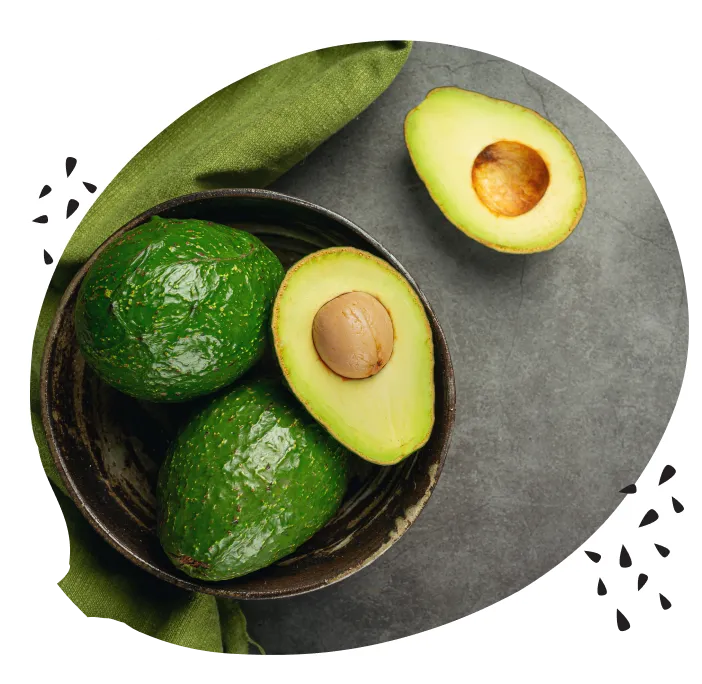
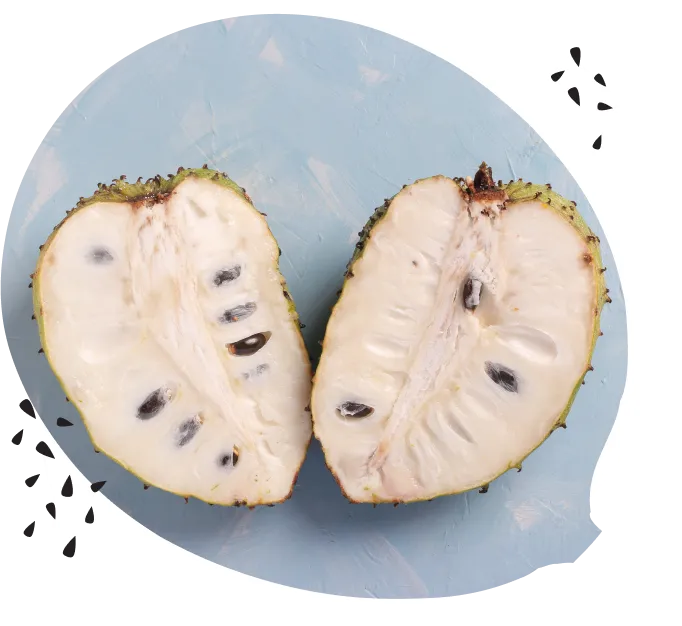
Soursop
It is an exotic tropical fruit and very popular worldwide due to the different preparations that can be made with it, especially desserts.
Its scientific name is Annona Muricata L; this fruit is very beneficial for health, highlighting its natural anti-inflammatory properties, reducing the risk of cardiovascular diseases, preventing osteoporosis, strengthening bones, and helping to strengthen the immune system.
Guava
Its scientific name is Psidium Guajava, it is a fruit that is very attractive due to its low acidity, sweet aroma, and mild flavor. Various preparations can be made from this fruit, such as jams, juices, sweets, among others.
It is rich in vitamin C, which helps strengthen the immune system and respiratory pathways. It contains antioxidants that promote skin care and serve as a treatment for different types of cancer. Due to its potassium content, it is recommended for people with urinary problems. It helps reduce sugar levels and can be used to treat diabetes.
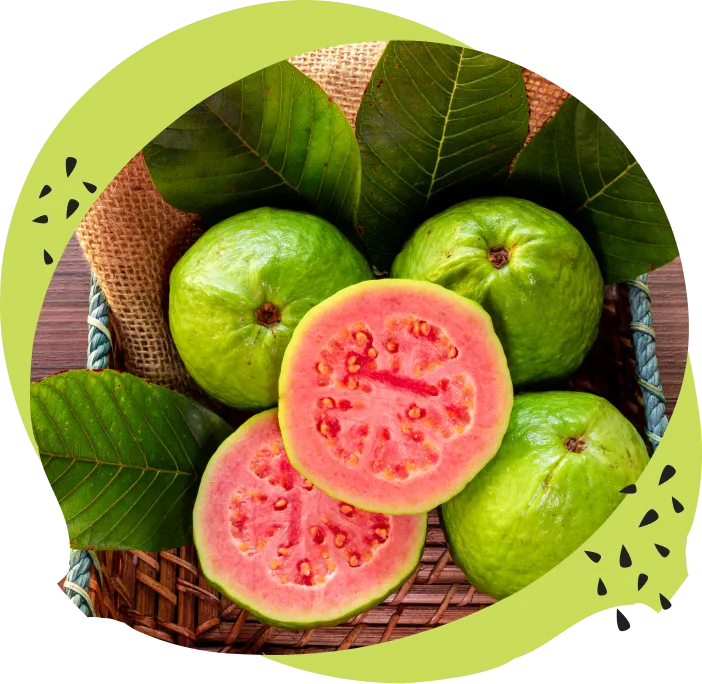
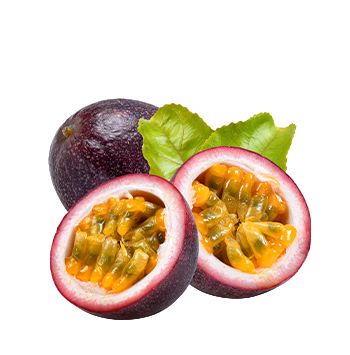
Gulupa
Gulupa is characterized by belonging to the Passifloraceae family, with its scientific name being Passiflora Pinnatistipula. In addition to this, it is recognized for its exotic nature due to its unique aroma and sweet flavor compared to fruits like passion fruit which tend to be more acidic.
Furthermore, consuming Gulupa offers health benefits such as stress reduction, assistance with insomnia, contribution to the reduction of blood pressure and cholesterol levels, support for arthritis treatments, and aid in strengthening the digestive and cardiovascular systems.
Lemon
The lemon is a highly fragrant and acidic citrus fruit; its fruit is mainly used fresh in the gastronomic industry for the preparation of beverages, desserts, salads, and soups in different parts of the world, and it serves as an accompaniment to a variety of dishes.
In addition to its culinary uses, lemon is used as a raw material for the manufacturing of medications, recommended in diets, and employed in numerous home remedies.


Pineapple
Pineapple is an exotic fruit, identified by its scientific name Ananas Comosus. It is well-known worldwide for its exotic aroma and its flavor, which is a combination of tartness and sweetness. Additionally, it is very hydrating as 85% of its composition is water. It contains vitamins A, B1, and C.
It benefits the digestive system by helping to flush out toxins from the body, promoting colon health, eliminating fats, and aiding in intestinal transit. It is good for the skin, and scientists claim that pineapple helps in cancer treatments, strengthens the cardiovascular system, and helps with various skin conditions.
Pitahaya
It is an exotic fruit originated from tropical Cactaceae plants with a refreshing sweet pulp and intense aroma. Its color is white, and it contains small seeds. This fruit is composed of 90% water and contains fibers, vitamin A, vitamin B3, and a high content of vitamin C. Additionally, it has a low caloric value and is mainly composed of carbohydrates.
The pitahaya offers numerous health benefits as it acts as an antioxidant, antitumoral, and anti-inflammatory.
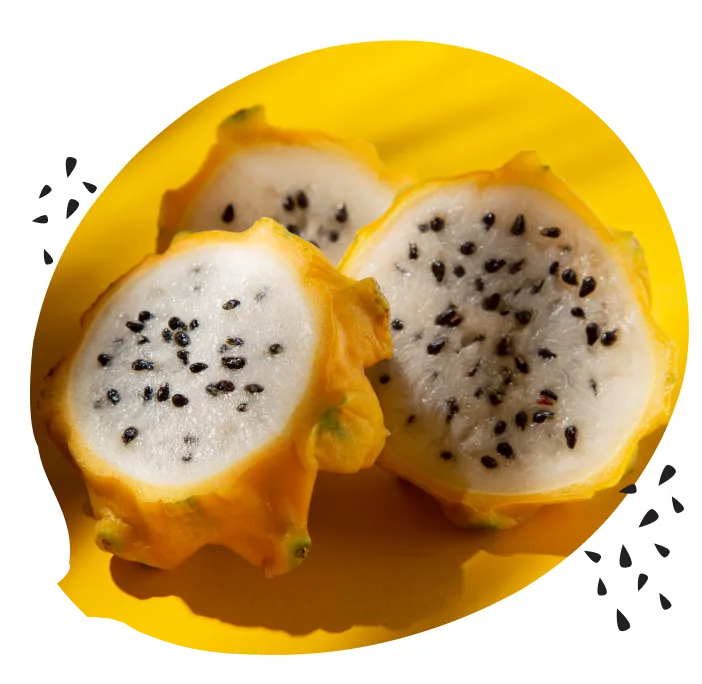

Cape Gooseberry
It is an exotic fruit that originated from native shrubs in South America. It has an orange color and is highly appreciated for its aroma and a taste that combines acidity and sweetness. It is consumed fresh and is used in the preparation of desserts and syrup.
Among its main components, it contains a considerable nutritional value of vitamins A and C, dietary fiber, iron, and phosphorus. Thanks to its anti-inflammatory and antioxidant properties, uchuva contributes to blood purification, protects optic nerves, and prevents conditions such as cataracts.

